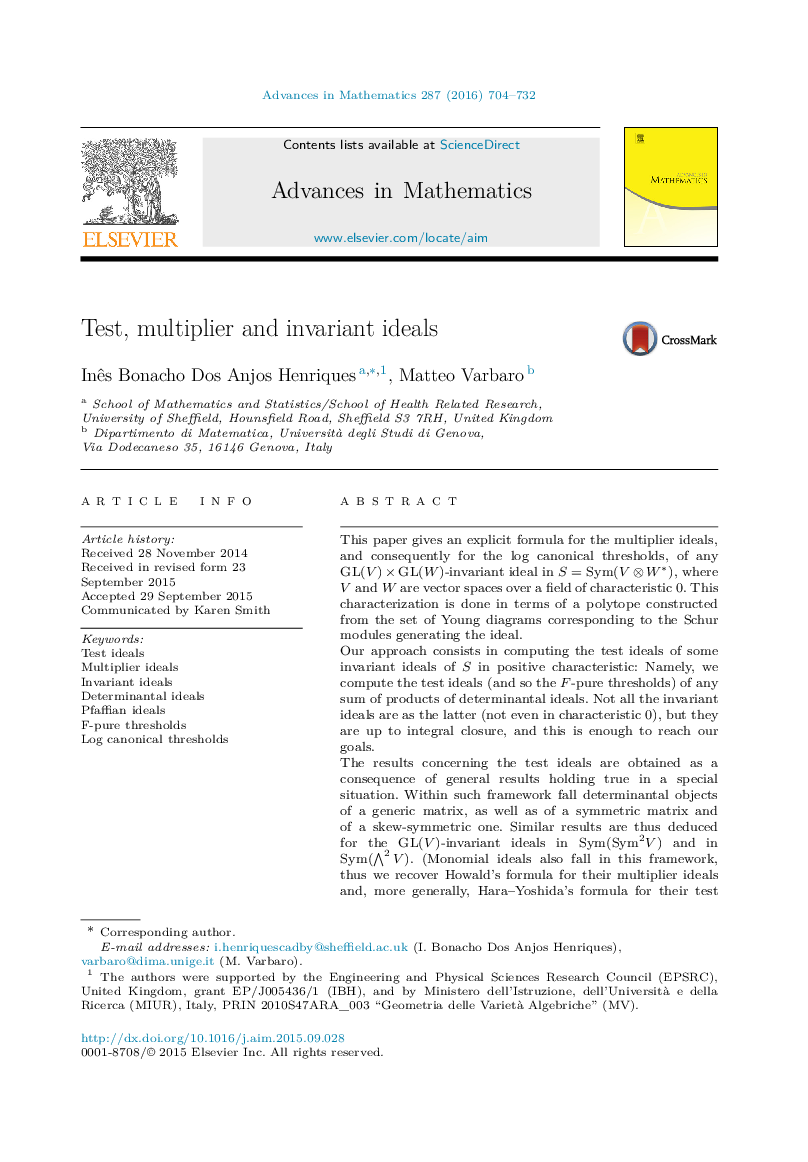| Article ID | Journal | Published Year | Pages | File Type |
|---|---|---|---|---|
| 4665329 | Advances in Mathematics | 2016 | 29 Pages |
This paper gives an explicit formula for the multiplier ideals, and consequently for the log canonical thresholds, of any GL(V)×GL(W)GL(V)×GL(W)-invariant ideal in S=Sym(V⊗W⁎)S=Sym(V⊗W⁎), where V and W are vector spaces over a field of characteristic 0. This characterization is done in terms of a polytope constructed from the set of Young diagrams corresponding to the Schur modules generating the ideal.Our approach consists in computing the test ideals of some invariant ideals of S in positive characteristic: Namely, we compute the test ideals (and so the F-pure thresholds) of any sum of products of determinantal ideals. Not all the invariant ideals are as the latter (not even in characteristic 0), but they are up to integral closure, and this is enough to reach our goals.The results concerning the test ideals are obtained as a consequence of general results holding true in a special situation. Within such framework fall determinantal objects of a generic matrix, as well as of a symmetric matrix and of a skew-symmetric one. Similar results are thus deduced for the GL(V)GL(V)-invariant ideals in Sym(Sym2V)Sym(Sym2V) and in Sym(⋀2V)Sym(⋀2V). (Monomial ideals also fall in this framework, thus we recover Howald's formula for their multiplier ideals and, more generally, Hara–Yoshida's formula for their test ideals.) In the proof, we introduce the notion of “floating test ideals”, a property that in a sense is satisfied by ideals defining schemes with the nicest possible singularities. As will be shown, products of determinantal ideals, and by passing to characteristic 0 ideals generated by a single Schur module, have this property.
